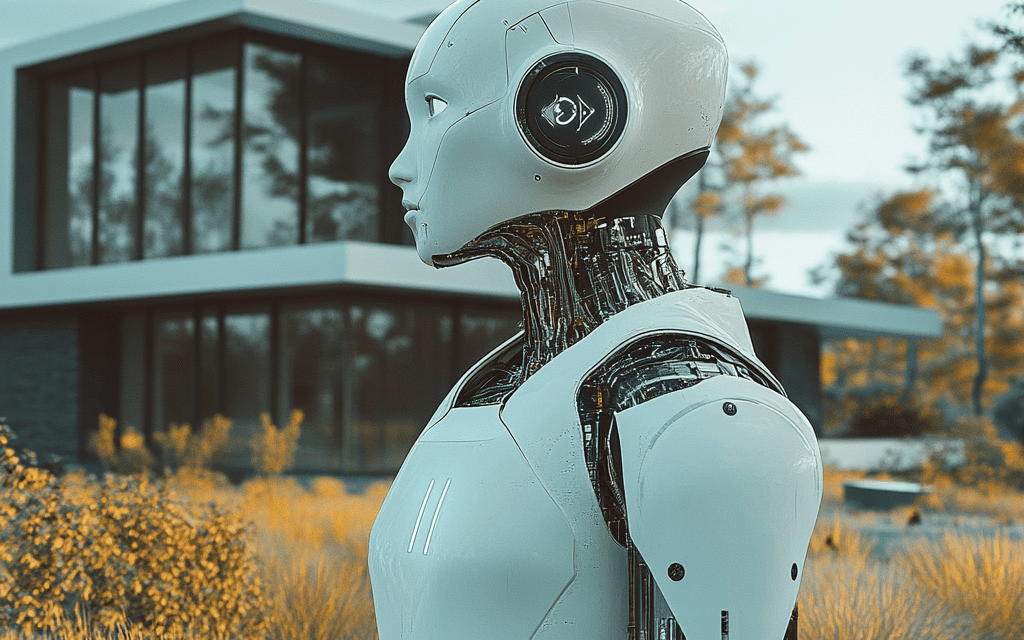AI for home automation
With the progression of home automation technology, is gradually becoming an integral part of smart home systems. In essence, the incorporation of AI in home automation refers to the application of AI technology to enhance the practicality, efficiency, and functionality of smart home systems and devices.
In this context, this article explores the potential influence of artificial intelligence (AI) on future home automation. As per the Consegic Business Intelligence, the is projected to expand from USD 69.01 Billion in 2023 to over USD 155.05 Billion by 2031, with an expected increase of USD 75.13 Billion in 2024, at a CAGR of 10.6% from 2024 to 2031. It further discusses the advantages of AI-driven systems, various emergent features, and the role of technological innovation as a catalyst for change.
AI-based features in smart homes
The incorporation of AI into home automation will completely transform how people engage with their living environments in the future: The upcoming developments in Smart Homes within the confederation are filled with these promising features:
Smart Voice Assistants:
Home automation heavily relies on these voice assistants that are fundamentally powered by artificial intelligence.
Applications of this kind, such as Google Assistant, Siri from Apple, and Alexa from Amazon, offer voice control over numerous smart home features including security systems, control of lights, and temperature regulation, to name a few.
Their capability to comprehend and execute complex commands is due to the sophisticated natural language processing, a product of AI technologies, ensuring a more natural, conversational interaction.
Adaptive and Predictive Systems:
The home automation system, through the use of AI algorithms, gradually understands the pattern of user behavior and preferences. In other words, devices such as appliances, smart thermostats, and lighting controls can adapt themselves based on the usage habits of the residents. For instance, a smart thermostat may identify patterns like when the house is usually empty, and consequently adjust the temperature during these periods to save energy.
Enhanced Security and Surveillance:
The integration of artificial intelligence provides not just advanced home protection but also better threat monitoring and identification.
This is facilitated by AI-controlled home security cameras and sensors, whether it’s instant notifications for security violations, facial recognition, or abnormal activity detection. This results in a more proactive security system and an increased sense of tranquility.
Effortless Integration and Compatibility:
The forthcoming AI for home is set to be designed for flawless integration and operation with a majority of intelligent platforms and devices. AI has the potential to unify diverse products from various manufacturers, enhancing the overall smart home experience. This implies that users can manipulate multiple devices via a single interface or voice command.
Benefits of AI in Home Automation
The integration of AI in home automation has ushered in a new age of convenience for people. The significant advantages of blending AI with home automation have profoundly altered how humans interact with their living environment, as outlined below.
1.Improved Comfort:
The choices made by users and the automation of monotonous tasks via AI make daily life far more comfortable. The lessening of manual control requirement, enabled by voice commands, automated schedules, and anticipatory adjustments, augments order and efficiency in life.
2.Efficiency in Energy Usage:
AI-driven systems enhance energy efficiency by analyzing usage patterns and configuring settings to avoid wastage. For instance, intelligent thermostats can lower heating or air conditioning when the house is empty, leading to substantial energy savings and decreased utility bills.
3.Enhanced Security:
The application of artificial intelligence significantly boosts the security measures of any dwelling place with its around-the-clock intelligent surveillance and immediate alerts. It can differentiate between normal and suspicious activities, thus preventing unnecessary triggering of alarms. It ensures only genuine concerns are brought to the attention of the households.
4.Personalized Environments:
By adapting to each person’s routines and likes, AI can create highly individualized home settings. AI improves the home environment’s comfort and personalization for every resident, from programming devices according to their usage habits to adjusting the ambiance of changeable lights. Read More


